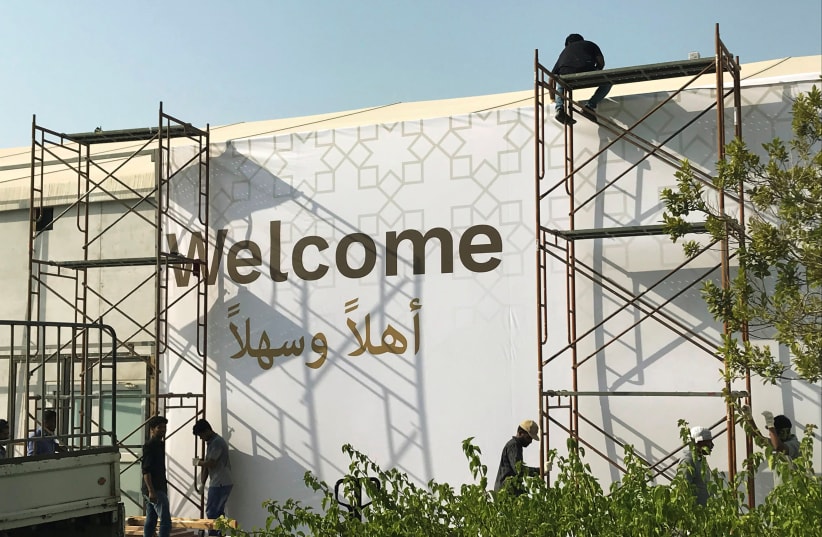EN ROUTE TO MANAMA, Bahrain – “Bahrain?” the surprised security guard at Ben-Gurion Airport asked early on Tuesday morning when I told her my final destination. “Do they let Israelis go there?”No, they don’t, at least not ordinarily. And that is precisely what makes this trip feel different: the forbidden, or the generally forbidden, always has a certain allure.Israel’s media outlets have not been granted entry into the tiny Persian Gulf country since the halcyon days that immediately followed the signing of the Oslo Accords on the White House lawn in 1993.In 1994, environment minister Yossi Sarid attended a meeting in Manama – and that was apparently the last time Israeli journalists were allowed in. (Israeli businessman make the trip regularly, but very much under the radar).This means that my trip is not exactly Neil Armstrong walking on the moon. It isn’t. In the strict sense of the word, this entrance to Israeli journalists is also not “historic,” since it has been done before.
But that was a long time ago, when the atmosphere in the region was vastly different.Back then, many felt the Levant was on the brink of peace; today, many fear it is on the cusp – especially in the Persian Gulf – of war.The Jerusalem Post is one of six media outlets invited to cover the “Peace to Prosperity” workshop opening Tuesday evening in Bahrain.The Baharanis invited me and my colleagues, it is safe to say, because the Americans asked them to. A request that I submitted on my own – before White House intervention – to cover the event on behalf of the Post was politely turned down two weeks ago.Only last week did Israeli journalists get invitations, and my visa only came through on Monday, less than 24 hours before my planned departure.The flight to Manama is a short one: 30 minutes to Amman, and then another two hours and 15 minutes to Bahrain.Crazy thoughts went through my mind before my departure, such as whether it was safe to bring my tallit and tefillin, and whether I should remove all Hebrew packaging from the kosher foodstuffs I was taking to the conference.The Bahraini government had invited me, but that didn’t mean that this welcome would filter down to the security personnel at Queen Alia International Airport in Amman, or to the bag handlers at Bahrain International Airport.We’re heavily influenced by what we see and read, and what I’ve seen and read for so long is an Arab world that detests Israel.The leaders might see its utility, but the people – fed a constant anti-Israel drumbeat for generations – are a different story. I’m flying on my American, not Israeli passport, “just in case,” and am I really going to tell my cab driver where I live when he asks? Probably not.Which is what this conference in Manama is also about: breaking through the psychological barriers, making the Arab world feel more comfortable with me, and me with it.That’s a long journey, much longer than a half-day’s travel time from Tel Aviv to the Persian Gulf. But it’s a start.
